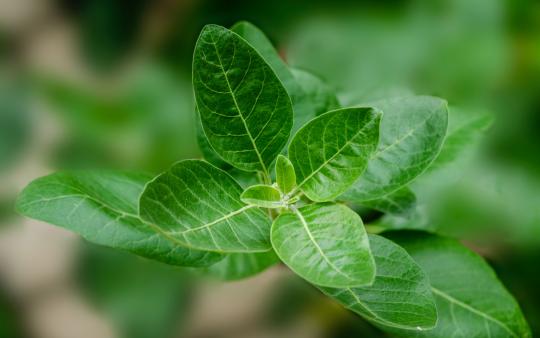Ashwagandha: Essential in Your Parental Toolbox for Managing Stress
Bankim Desai/Unsplash.com
Being awakened at whatever moment in the night, constantly being told “I’m hungry,” running kids from one activity to the next, taking care of laundry and meals… this is life as a mom. It’s easy for stress to creep in and it’s important to engage in a bit of self-care along the way. Often, when we think of self-care, our minds turn to things like going out for an afternoon of shopping or treating ourselves to a specialty coffee or a manicure. While all these things are enjoyable and helpful, self-care needs to be a part of our daily routine. We can achieve this by making healthy choices for ourselves by eating nutritious food, exercising, and getting adequate sleep. These practices may not be as much fun as taking time away from the regular grind, but this is where self-care starts. As a mom of three little ones, prioritizing this type of self-care really makes a difference in how I feel and interact with my kids. Another habit of self-care is taking the right herbal products to keep your body and energy as balanced as possible.
Adaptogens – Aid towards a life of balance
Herbs are powerful and wide-ranging in their impact, helping us to feel our best in various ways. Some herbs fall under the category of “adaptogens,” a term that was coined by Russian scientists to describe these particularly powerful plant remedies. Adaptogens are metabolic regulators that help the body adapt to physical, environmental, and psychological stressors, making it easier for your body to be in balance. For many decades, elite athletes in Russia, Germany, and China have used adaptogen herbs as training aids as they have been found to significantly shorten recovery times between workouts, enabling athletes to train harder, longer, and more intensely with fewer repercussions. No longer the sole domain of athletes, they’re exactly what a busy mom might need!

Ashwagandha – One herb, many benefits!
Among the adaptogens, ashwagandha stands out as a unique and marvelously effective herb on many levels. Used for many centuries in Ayurvedic medicine, the traditional medical system of India, ashwagandha has been described as nature's wonder herb.
A relatively recent placebo-controlled clinical trial of ashwagandha that examined 64 patients with a history of chronic stress found that the treatment group showed significant reduction of stress scores relative to the placebo group. As well, ashwagandha is a compelling alternative for dealing with anxiety, which often accompanies stress. For example, a systematic review of five human clinical trials that tested ashwagandha as a treatment for anxiety and stress found an improvement in symptoms as compared to placebo and cognitive-behavioral therapy. Stress has been linked to obesity because it elevates hormones like cortisol. This leads in turn to problems such as increased food intake, resulting in weight gain and metabolic syndrome. A further trial suggests that ashwagandha can be used for body weight management in adults under chronic stress.
With this impressive capacity, it’s not surprising that among the other strengths of this wonder herb are its potent tonic effects on sexual function1 and fertility in both men and women and its remarkable neuro-regenerative properties, helping to preserve the health of the aging brain and nurture the nervous system. As if that weren’t enough, it has anti-inflammatory properties for arthritic and rheumatic conditions.
Vitality, energy, endurance, stamina, athletic performance, enhanced immune function, and a general feeling of well-being—it’s all part of ashwagandha’s multi-faceted power.2 One herb, many benefits, not least for the stressed-out mom who wants to preserve her strength and her sanity.
Notes
- Fertility and Sterility 2009 June 5 (epub)
- Kerry Bone, A Clinical Guide to Blending Liquid Herbs, St. Louis, MO: Churchill Livingstone, 2003, p. 74.






